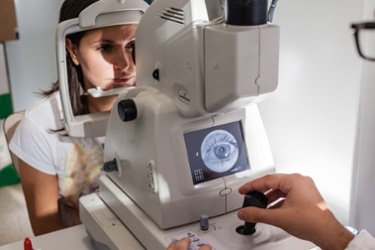Regenerative medicine: a record year?
Category: Uncategorized
Regenerative medicine is a relatively new field within the life sciences space – and is currently attracting large numbers of investors. But what does the term mean, and who are the startups to watch?
What is it?
In brief, regenerative medicine is research involving the replacement or regeneration of the human body – from individual cells to tissues, or even whole organs. Much of the research involves stem cells.
Who are the ambitious companies?
We track 35 regenerative medicine startups in the UK. As a sector still very much in its infancy, these companies are typically (40%) young, seed-stage enterprises.

Orchard Therapeutics is one such company. It aims to bring gene therapies to children with life-threatening orphan diseases (diseases which affect fewer than 200,000 individuals), and has secured £50.2m in fundraisings – despite being in its seed stage. It follows Cell Medica (£137m raised), which develops and markets patient-specific drugs for the treatment of infectious diseases and cancer.
In terms of the grant funding tracked by Beauhurst, the three-year-old Exonate is storming ahead on £4.9m. This amount came from the Wellcome Trust in February, and is aimed at helping Exonate develop its treatment for wet macular degeneration, an eye disease.
NuVision, a seed-stage pharmaceuticals company, also focuses on patients’ eyes, trying to navigate problems that arise from using frozen amniotic membrane as a wound dressing. Similarly, NightstaRx is developing drugs for the treatment of degenerative conditions that affect vision.
Another key area of interest is age-related degeneration. Oxstem develops cell programming therapies, whereby drugs are used to regenerate or stimulate cells to treat diseases that are typically age-based. Progenitor works in the same space, although focuses also on injury-based problems, and Stratastemdevelops therapeutics designed specifically to diagnose and combat Alzheimer’s.

Who are the investors?
IP Group and Touchstone Innovations are the two largest players in this sector, and have each invested four times into regenerative medicine startups. Touchstone Innovations is the larger of the two funds, having invested £961m into UK high-growth companies, compared to IP Group’s £434m. IP Group typically invests less in exchange for less: on average, it takes 38.3% stakes in exchange for an average investment of £4.48m, and Touchstone takes £43.3% in exchange for £9.15m.
Despite its smaller average investment, however, IP Group looks to be investing in the more valuable companies: its investees have an average pre-money valuation of £18.7m to Touchstone’s £11.1m. Touchstone, then appears more interested in taking larger stakes in younger companies than investing a smaller amount of capital, for less equity, in less risky ventures. It is also the most prolific investor in the life sciences sector as a whole, having completed 51 fundraisings here (the Scottish Co-Investment Fund, its nearest rival, is on 38).
Interestingly, all but one of the 107 fundraisings into the space took place at companies’ seed or venture stages. In other industries, it’s normal to see up to 30% of fundraisings being into later-stage firms. In the broader category of life sciences, the average proportion of companies which receive funding at their growth stage is 12%.
This is not entirely strange, however: regenerative medicine is an emergent sector, and its technologies require extensive research & development before becoming ready for market. Developing intellectual property and securing it with patents is a time-intensive process, and we would not expect to see many companies generating profit or even revenue for several years.
Young companies, high value.
Startups in the regenerative medicine sector have raised an average of £3.39m, which is only slightly less than the £3.44m average seen across all life sciences. Similarly, the average pre-money valuation in this space is £13.3m – just shy of all life science companies’ £14.4m. Given the relative youth of regenerative medicine as a field, these statistics are impressive. These are companies that are young, but investors are seeking large-scale growth.
And these investors, as touched upon above, are not those typical of other B2C sectors. Crowdfunders, traditionally some of the most active investors in the market, are relatively absent here: only SyndicateRoom has participated in more than one raise in the sector (it has twice backed Axol Bioscience, and once backed The Electrospinning Company). Several angel networks are active, however, as are local and regional government. Evidently, the regenerative medicine sector is attracting a diversity of investor types.
2017 has already seen a record amount (£128m) invested in regenerative medicine, and deal numbers are on course to at least meet last year’s; the same is not quite true of broader life sciences deals. Should two or three extra deals come in over H2, regenerative medicine would be looking at a record year.
Discover the UK's most innovative companies.
Get access to unrivalled data on all the businesses you need to know about, so you can approach the right leads, at the right time.
Book a 40 minute demo to see all the key features of the Beauhurst platform, plus the depth and breadth of data available.
An associate will work with you to build a sophisticated search, returning a dynamic list of organisations matching your ideal client.